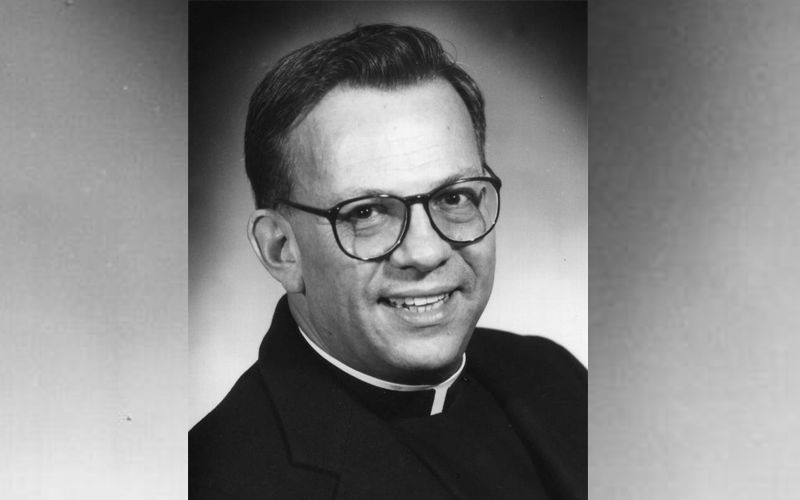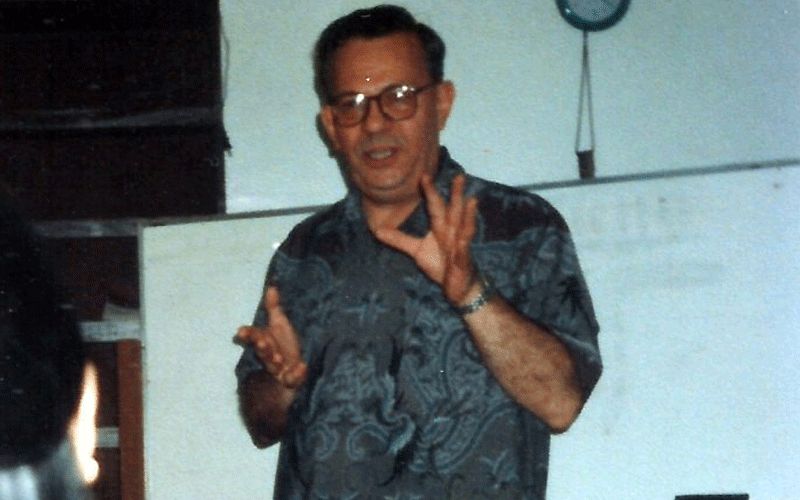“The Maryknoll Missionary in Asia always expressed his availability to share his wisdom gained from decades of service in Catholic media,” Fr. Don Bosco says.

He narrates a past incident where on reaching out to Fr. Astorino, the Maryknoll Priest regretted that he was not available at the time and promised to reach him later.
“After having been away for some weeks, he wrote back, ‘I am here to resume our conversation whenever you invite me to do so on whatever subject you care to discuss’,” recalls Fr. Don Bosco.
Fr. Don Bosco who later became the head of the Association for Africa Information (ACI Africa), a news Service for the African continent, says in reference to Fr. Astorino, “I found him pragmatic in his approaches and forthright in speech.”
(Story continues below)
In the couple of meetings that Fr. Don Bosco and Fr. Astorino attended, the late Priest underscored the necessity to have financial resources to run Church projects.
In one of the numerous letters that Fr. Don Bosco received from his mentor, Fr. Astorino wrote, “CANAA's major challenge right now is to secure the funds it needs to develop as a competent and credible news service. Without money, nothing can happen. No money, no talk, as the Chinese say.”
It is a challenge that led to the collapse of Sir Assorow’s brainchild. He says, “It makes me sad that CANAA died because we didn’t have the funds to steer it forward. We had the backing of the Bishops within SECAM but lacked the moral as well as financial support of the rest of the Church.”
Fr. Don Bosco attests to the fact that many people have gained from Fr. Astorino’s wealth of experience in overseeing Catholic media outlets “with a significant audience.”

“In the process of establishing ACI Africa, I am finding Fr. Astorino’s advice about having a lean staff at the headquarters (HQ) spot on,” the Priest says of the agency that he has been managing since August last year.
At some point, the ACI Editor-in-Chief once asked the Maryknoll Priest how to go about staff remuneration for a continental news service.
His answer was, “Be sure to find the right person for each job and pay whatever it takes to engage that person. This is especially important for people whose positions directly involve journalism tasks such as editing,” Fr. Don Bosco recalls.
Fr. Astorino also once said that he had learnt from his own experience of managing media outlets in Asia that full-time personnel working in different parts of the continent must be paid according to their locality.
In another advice to the Diocese of Rumbek Priest, Fr. Astorino also advised, “Hiring an unqualified person as an editor just because their salary would be lower than that of a genuinely qualified person would be really counterproductive for the whole news service.”
“He was very keen on emphasizing the need to have an editorially ‘independent news service’ that can tell Africa’s story from a Catholic faith perspective,” Fr. Don Bosco further says.

He recalls Fr. Astorino’s advice in that regard, “CANAA should not be tied to be tied to SECAM if it wants to be respected as a credible, professional and independent news service. If it stays closely linked with SECAM, it can only be regarded as a public relations venture of the African Bishops.”
As for Fr. Alumuku, who founded Catholic Television of Nigeria (CTV), a television network that is uniting Christians across Africa’s most populous nation, news of Fr. Astorino’s death was shocking.
“I am stunned by the news of the passing away of Fr. Bob Astorino, priest and journalist of repute,” Fr. Alumuku told ACI Africa.
Fr. Alumuku who doubles as Director of Communications in the Catholic Archdiocese of Abuja recalls meeting Fr. Astorino in one of the meetings towards the establishment of CANAA in Kenya’s capital, Nairobi.
“He (Fr. Astorino) had an incredible wealth of experience in journalism. He came to Nairobi from Hong Kong where he was working at the Union of Catholic Asian News (UCAN),” Fr. Alumuku says, and adds, “His tremendous contributions shed light to the task of setting up the African Catholic news agency.”
Born on May 27, 1943, Fr. Astorino was educated in Catholic schools in his home city of New York before entering Maryknoll as a seminarian.
Following his ordination in 1970, Fr. Astorino went to Hong Kong in 1971 and helped launch the Hong Kong Catholic Social Communications Office where he was assistant director for several years.
After conducting a feasibility study on church information needs in Asia, he launched UCA News in 1979 to provide news for the Catholic Church in Asia, eventually establishing 14 news bureaus to cover 22 countries.
Fr. Astorino is known for pioneering Catholic media in Asia and mentoring many people in journalism, with those he trained proceeding to work in Catholic communications and in secular media.
His ministry in Catholic journalism drew recognition from high places. He served as a member of the Vatican’s Pontifical Council for Social Communication. the Catholic Press Association in the U.S. recognized him in 1998 with the Bishop John England Award, which honors “publishers who used the Catholic press to defend the rights of religion and individuals in a free society.”
In their condolence messages, the three media practitioners in Africa remember a humble, generous and jovial man who “gave himself wholly in the field of communications in the Church.”
In his farewell remarks to the late Maryknoll Missionary Priest, the Abuja-based CTV founder says, “He served God writing, may God write his name in the book of life.”
Agnes Aineah is a Kenyan journalist with a background in digital and newspaper reporting. She holds a Master of Arts in Digital Journalism from the Aga Khan University, Graduate School of Media and Communications and a Bachelor's Degree in Linguistics, Media and Communications from Kenya's Moi University. Agnes currently serves as a journalist for ACI Africa.












